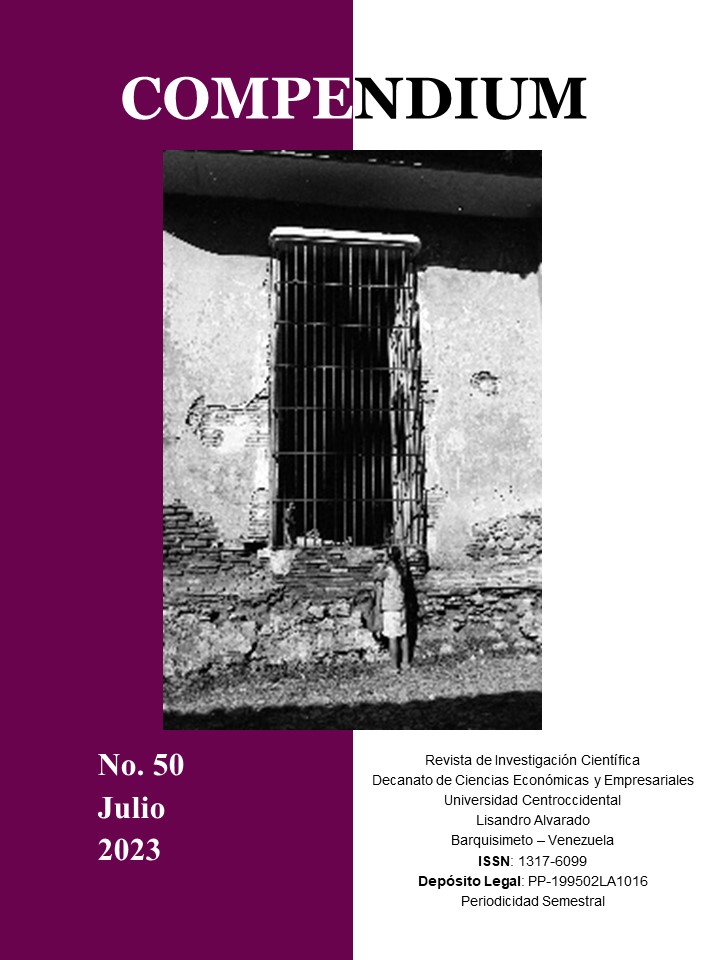Theoretical-conceptual, epistemic and methodological positions around the construct of integral human development
DOI:
https://doi.org/10.5281/zenodo.10271495Keywords:
Integral Human Development, human capacities, individual/collective liberties, life dignity, multidimensional growthAbstract
he search for the state of individual/social fullness and personal self-realization, have at the base of their operational foundation the tasks of integral human development, such as the process of continuous, dynamic, systematic growth as well as throughout the life cycle, that involves the expansion of possibilities in order to interact positively and coherently with the environment, in which the specification of opportunities and alternatives seeks to dignify life and existence as institutional responses. This research, as a result of a multidisciplinary documentary review, collects the theoretical-conceptual, epistemic and methodological positions around the construct of integral human development. It is concluded that the multidimensional growth of the individual depends on external and internal factors, from which to consolidate specific purposes such as: survival, the scope of success and the active willingness to participate jointly in the construction of enriching spaces focused on promoting the development of human capacities and individual/collective freedoms on which the functional balance of the subject depends.
Downloads
References
Amayuelas, A., Acha, A., Gordillo, M., Reyes, E., Surasky, J., Leida, R., Meymen, N., Messias, R y Martínez, P. (2017). Transformar nuestro mundo, ¿realidad o ficción? País Vasco: UNESCO.
Barra, E. (2003). Psicología de la salud. Santiago de Chile: Editorial Mediterráneo.
Berlín, I. (2007). Dos conceptos de libertad y otros escritos. Madrid: Paidós.
Delval, J. (1994). El desarrollo humano. Madrid: Siglo XXI Editores.
Griffin, K. (2001). Desarrollo humano: origen, evolución e impacto. En Ibarra, P., y Unceta, K., (Coord.). Ensayos sobre el desarrollo humano. España: Icaria Editorial.
Lafarga, J. (2016). Desarrollo humano: desarrollo personal. México: Editorial Trillas
López, E. (2020). La UNESCO en la Agenda 2030: La importancia de la Cultura y el Patrimonio para el cumplimiento de los Objetivos del Desarrollo Sostenible. Lima: UNESCO.
Martínez, M. (2009). Dimensiones básicas del desarrollo humano integral. Polis, Revista de la Universidad Bolivariana, 8 (23), 119-138.
Morales, J. (2020). Una política pública para potenciar la calidad de vida y el desarrollo humano. Universidad de Los Andes. Revista Estado de Derecho, 2 (1), 119-146.
Morales, J. (2022). Sen Amartya. Aportaciones teórico-metodológicas y propuestas al desarrollo humano en discapacidad. Paradigma, Revista de Investigación Educativa, 29 (47), 163-182.
Naranjo, C. (2013). Cambiar la educación para cambiar el mundo. Madrid: Editorial La Llave.
Papalia, D. y Martorrel, G. (2017). Desarrollo humano. México: McGRA-WILL/Interamericana Editores.
Portes, A. (2013). Sociología económica. Una investigación sistemática. Madrid: Centro de Investigaciones Sociológicas.
Sabino, C. (2004). Desarrollo y calidad de vida. Argentina: Unión Editorial.
Sandoval, S. (2012). Psicología del desarrollo humano. Culiacán: Universidad Autónoma de Sinaloa.
Sarramona, J. (2007). Desafíos de la escuela en el siglo XXI. Barcelona: Editorial Octaedro.
Sen, A. (2000). Desarrollo y libertad. Buenos Aires: Editorial Planeta.
Seelbach, G. (2013). Teorías de la personalidad. Ciudad de México: Red Tercer Milenio.
Tedesco, J. (2014). Educar en la sociedad del conocimiento. México: Fondo de Cultura Económica.
Woolfolk, A. (1999). Psicología educativa. Madrid: Pearson Educación.
Published
How to Cite
Issue
Section
Copyright (c) 2023 Jesús Alfredo Morales Carrero

This work is licensed under a Creative Commons Attribution-NonCommercial-NoDerivatives 4.0 International License.




